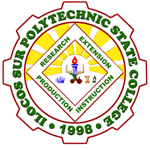Discrete Structures 2 is a subject that explores various mathematical structures and concepts essential for understanding and solving problems in computer science and other fields. It focuses on the study of graphs, which represent relationships between objects, and trees, which depict hierarchical structures. The subject also delves into matrices, which are rectangular arrays of numbers, and their applications in solving linear equations and representing transformations. Combinatorics, a branch of mathematics concerned with counting and arranging objects, is another important aspect covered in this subject. Through an in-depth examination of these topics, students gain a solid foundation in discrete mathematics and its applications in computer science and related disciplines.
This course is to provide an introduction on the fundamentals of parallel and distributed computing. It also provides an overview of the types of parallel computing: shared memory, distributed memory and Hybrid Distributed-Shared Memory. It also encompasses parallel programming Models, designing parallel programs and distributed system.
This course aims to expand the limits of the student’s point of view and outlook on unfamiliar ideas and cultures that may stimulate concerns and interest on the global perspective that may let the student have intellectual interest to be pursued. A s the students understand the contemporary world they live in, it will be an avenue to compare their own society with others, economic disparity and the reason behind it, and find ways how to interact with it. This course will become an orientation course to the students who plans to go global in their careers of which it is in line with NLPSC’s vision-to produced quality human resources for global competitiveness.
This is an introductory course on the creative output of human being designed to introduce and exposed the students to the different arts both in theory and practices; visual, auditory, performing arts. It aims to develop the student’s inner life, increase their awareness and sensitivity to the state of arts and culture, more particularly, the Philippines arts.
Individual/Dual Sports/Games is a subject that focuses on the study and practice of sports and games that involve either individual or dual participation. It encompasses a wide range of activities such as tennis, badminton, chess, table tennis, and boxing, among others. The subject explores the rules, techniques, strategies, and tactics specific to each sport or game, emphasizing the development of individual skills and competitive abilities. Students gain a comprehensive understanding of the physical, mental, and technical aspects of these activities, honing their coordination, agility, decision-making, and problem-solving skills. Through participation and analysis, they also learn about sportsmanship, fair play, teamwork (in dual sports), and the importance of regular exercise and physical fitness for a healthy lifestyle.
This course introduces a coverage of professional, ethical, legal, security and social issues and responsibilities in the utilization of information technology. Specifically, this course will cover introduction to ethics, social networking issues, data privacy laws, computer security and reliability, intellectual property, and free speech. Also, it introduces various professional codes of conduct for the adoption of appropriate professional, legal, and ethical practices.
